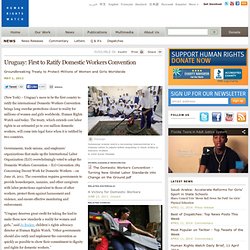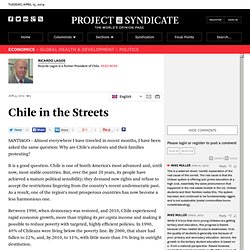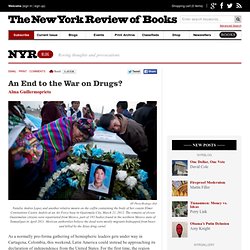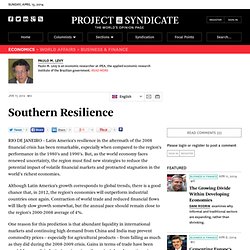

Haiti. Nicaragua. Brazil. The USA. Canada. Cuba. Mexico. Bolivia. Guatemala. Venezuela. Colombia. Uruguay: First to Ratify Domestic Workers Convention. (New York) – Uruguay’s move to be the first country to ratify the international Domestic Workers Convention brings long overdue protections closer to reality for millions of women and girls worldwide, Human Rights Watch said today.

The treaty, which extends core labor rights to an estimated 50 to 100 million domestic workers, will come into legal force when it is ratified by two countries. Governments, trade unions, and employers’ organizations that make up the International Labor Organization (ILO) overwhelmingly voted to adopt the Domestic Workers Convention – ILO Convention 189 Concerning Decent Work for Domestic Workers – on June 16, 2011. The convention requires governments to provide housekeepers, nannies, and other caregivers with labor protections equivalent to those of other workers, protect them against harassment and violence, and ensure effective monitoring and enforcement.
Uruguay has 120,000 domestic workers. "Chile in the Streets" by Ricardo Lagos. Exit from comment view mode.

Click to hide this space SANTIAGO – Almost everywhere I have traveled in recent months, I have been asked the same question: Why are Chile’s students and their families protesting? It is a good question. Chile is one of South America’s most advanced and, until now, most stable countries. More killings as Honduran journalists “preyed on” by criminal and political network. Nation-building in Sri Lanka: the potential and the promise.
Should Central America Legalize Drugs? - Ralph Espach - International. Some regional leaders say it could bring peace and much-needed tax revenue, but both they and supporters of the drug war are missing the real problem.

Girls walk past a soldier on patrol in Guatemala / AP Last week, the president of Guatemala joined former and current presidents of Colombia and Mexico in expressing interest in considering the regional legalization of the drug trade. The U.S. Colombia and Mexico push for drugs debate. The Narco State - By Charles Kenny. America's longest running war -- the one against drugs -- came in for abuse this weekend at the Summit of the Americas.

The abuse is deserved. Forty years of increasingly violent efforts to stamp out the drug trade haven't worked. And the blood and treasure lost is on a scale with America's more conventional wars. An End to the War on Drugs? by Alma Guillermoprieto. As a normally pro-forma gathering of hemispheric leaders gets under way in Cartagena, Colombia, this weekend, Latin America could instead be approaching its declaration of independence from the United States.

For the first time, the region might come out against a US policy. The change in what seemed to be an immovable subservience has come gradually, but the immediate cause is drugs, and the surprising agent is Otto Pérez Molina, retired general, former intelligence chief, graduate of the Pentagon’s School of Americas, and now the new president of Guatemala.
Pérez Molina is no stranger to the War on Drugs. He campaigned for president promising to bring out the country’s dreaded Kaibil Army special forces against the drug trade; Guatemalan voters, judging crime and insecurity to be their greatest concern, elected him in November. Should Central America's drug violence be considered a global crisis? A new report from the U.N.'

"Beating the Drug-War Addiction" by Juan Gabriel Tokatlian. Exit from comment view mode. Click to hide this space BUENOS AIRES – In January, US President Barack Obama nominated Marine Corps Lieutenant General John F. Kelly to head the United States Southern Command (USSOUTHCOM). Good Times Down Latin America’s Way - Jorge G. Castañeda. Exit from comment view mode.

Click to hide this space MEXICO CITY – For Latin America, 2011 was, in Frank Sinatra’s terms, a very good year – and 2012 doesn’t look like being so bad either. For a region not always accustomed to things going well, this is a somewhat strange state of affairs. Three elections were held in Latin America in 2011. "The Andean Engagé" by Jorge G Castañeda. Exit from comment view mode.

Click to hide this space MEXICO CITY – The role of the politically committed intellectual has a long and ubiquitous history. Latin America’s Monetary-Policy Test - Andrés Velasco. Exit from comment view mode. Click to hide this space SANTIAGO – On matters of sex, the citizens of mostly Roman Catholic Latin America often proclaim one thing and practice something very different.
Latin America’s Stymied Innovators - Andrés Velasco. Exit from comment view mode.

Click to hide this space Comments View/Create comment on this paragraph SANTIAGO – First, there was one disappointed foreign entrepreneur. In December, Israeli venture capitalist Arnon Kohavi, whose firm had been lured to Chile by a government program to promote startups, announced that he was leaving. “A handful of monopolistic families control the country,” Kohavi declared to an online magazine. “Worse, these families don’t care about anything except their money.
Southern Resilience - Paulo M. Levy. Exit from comment view mode.

Click to hide this space. Foreign Affairs Focus On: Latin America With Christopher Sabatini. "The Summit of Muted Intentions" by Jorge G. Castañeda. Exit from comment view mode. Click to hide this space MEXICO CITY – The Summit of the Americas, which takes place roughly every three years, could be viewed as the sort of Latin American boondoggle that convenes heads of state for a few days, either south or north of the Rio Grande, to make endless speeches that lead nowhere.
But every now and then, the Summit – an American initiative launched by US President Bill Clinton in 1994 – actually helps to place key issues on the hemispheric table. One such issue was the so-called Free-Trade Area of the Americas, which was proposed by former US President George H.W. Bush in 1990, and then collapsed at the Mar del Plata summit in Argentina in 2005. The Land of Too Many Summits - By Christopher Sabatini. With President Barack Obama traveling to Cartagena, Colombia, for the Sixth Summit of the Americas on April 14, observers and journalists are already asking what his administration has done in the region since the last such meeting in Trinidad and Tobago in 2009. It's a good question, but the vague and inconsequential resolutions reached at these summits are a lousy metric to use. At Summit of the Americas, Washington Looks Behind the Times. At Historic Summit, Obama Rejects Fed Up Latin American Leaders' Calls for Drug Legalization. The Fallout From Washington's Time Warp on Cuba.